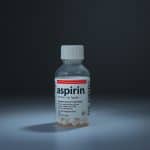The Impact of Ultra-Processed Foods on Inflammation: What Science Really Says

What Are Ultra-Processed Foods?
Ultra-processed foods (UPFs) are industrial formulations that go beyond simple cooking. They often contain additives like flavor enhancers, emulsifiers, preservatives, and colorings. Examples include sugary cereals, packaged snacks, processed meats, soft drinks, and frozen ready-to-eat meals. While convenient, UPFs are far removed from whole or minimally processed foods and are increasingly under scrutiny for their health impacts.
UPFs and Systemic Inflammation
Inflammation is a cornerstone of many chronic diseases, and new research highlights how UPFs contribute. In a large prospective study, individuals who consumed the highest amounts of UPFs showed significantly elevated levels of high-sensitivity C-reactive protein (hs-CRP), a biomarker for systemic inflammation. Elevated hs-CRP is strongly linked to cardiovascular events, cancer progression, and overall mortality risk.
Interestingly, alcohol and tobacco use appear to interact with UPF intake, amplifying negative effects on HDL-related inflammation biomarkers, which further undermines protective cardiovascular pathways.
UPFs and Gut Health
The gut is central to the immune system, and UPFs directly affect its balance. Epidemiological studies suggest that UPF consumption increases the risk of gut diseases such as inflammatory bowel disease (IBD), colorectal cancer, and possibly irritable bowel syndrome (IBS). The mechanisms are thought to involve:
- Gut dysbiosis: UPFs disrupt the balance of beneficial vs. harmful bacteria.
- Increased intestinal permeability (“leaky gut”): Additives, emulsifiers, and poor nutrient quality impair the gut barrier.
- Advanced Glycation End-products (AGEs): Heat treatment during UPF production generates AGEs, which trigger oxidative stress and inflammation in gut tissue.
While one randomized controlled trial demonstrated that UPF intake led to increased calorie consumption and weight gain, no long-term interventional studies yet fully examine UPF restriction and gut disease outcomes. Still, evidence from large cohorts points to a consistent and concerning trend.
UPFs and Chronic Disease Risk
Meta-analyses and large-scale epidemiological studies have painted a stark picture: for every 10% increase in UPF intake, the risks of cardiovascular disease and cancer rise by about 12%. Furthermore, greater exposure to UPFs is associated with:
- Higher risk of cardiometabolic disorders (e.g., diabetes, hypertension).
- Increased likelihood of common mental disorders such as depression.
- Elevated all-cause mortality rates.
Systemic inflammation and gut dysbiosis serve as the two primary biological pathways linking UPFs to these outcomes.
The Role of Trans Fats
Trans fats—often found in baked goods, fried fast food, and packaged snacks—are particularly harmful components of many UPFs. They promote inflammation, lower HDL cholesterol, raise LDL cholesterol, and are directly associated with cardiovascular disease risk. Although regulations have reduced trans fat content in some regions, they remain an important factor in the health burden of UPFs worldwide.
Conclusion: What Science Tells Us About UPFs
The evidence is clear: UPFs aren’t just empty calories. They actively fuel systemic inflammation, disrupt gut health, and drive chronic disease risks. From elevated hs-CRP to gut permeability and AGEs, science is uncovering the biological mechanisms that link UPFs to poor health outcomes.
While more randomized controlled trials are needed to fully understand the causal effects of restricting UPFs, the existing body of epidemiological and mechanistic evidence strongly suggests that reducing UPF consumption is a prudent step for long-term health. In the meantime, prioritizing whole, minimally processed foods remains one of the most evidence-based strategies for preventing inflammation-driven diseases.
Life in Balance MD is led by Dr. Amine Segueni, a board-certified physician dedicated to delivering clear, evidence-based health insights. His passion is helping readers separate facts from myths to make smarter, healthier choices. Content is for educational purposes only and not a substitute for medical advice.





